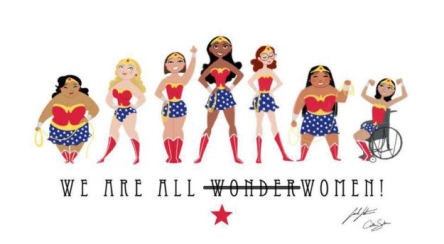
If you’ve been reading Happy Feminism for a while, you’re probably aware of my fascination with the Lean In movement. Most professional resources provide gender-neutral advice, as if pretending we live in a gender-blind society will make it a reality – but Lean In is different. Yes, men and women face many of the same obstacles, but how our choices intersect with our respective gender expectations is very different.
Two women who have successfully “leaned in” are Amy Poehler, awarded actress and founder of Amy Poehler’s Smart Girls, and J.T. O’Donnell, founder and CEO of CAREEREALISM.com. These women, realizing the role gender has played in managing their careers, have each published advice on how to tackle the many hurdles of working mothers.
Below are some of the highlights. For the complete reads, see: J.T. O’Donnell’s “Ladies, Let’s Move Past ‘Lean In’ & On To “Mess Up” and Taffy Brodesser-Akner’s “Poehler Power: Amy Poehler’s Rise To The Top.”

What is the best advice you ever received regarding your career?
“You are going to make mistakes. Lots of them. So, find your way to cope with the failure or you won’t be able to create the work and life you want.” -J.T. O’Donnel
What steps do you use to “mess up and move on”?
- Admit to the mistakes as quickly as possible.
- Encourage others to make mistakes and support them when they do.
- Identify Career Buddies you can talk to about the mistakes.
- Stay clear of those who don’t appreciate what you are doing. -J.T. O’Donnel
HOW DO YOU SEE GENDER AFFECTING THE WAY YOUR WORK IS PERCEIVED?
I just did a movie junket and reporters kept asking me, “Amy, how do you balance everything?” I started saying things like, “You have to be realistic about how much you can get done in a day,” and all that stuff. But then I was like, “Why don’t you ask the guy actors sitting next to me that same question?” They have kids, too! -Amy Poehler
HOW DO YOU PRIORITIZE WHAT YOU WANT TO GET DONE IN A DAY? DO YOU HAVE ANY TIPS?
My therapist gave me a good visual metaphor that I use a lot: I picture a refrigerator and on the refrigerator are six magnets. Each magnet says things like: relationship, kids, health, work, money, fun with friends — whatever. Every day you can really only put three magnets on the refrigerator. You’re not going to be able to use all of them. Like today is about my work, my children, and my health. Then the week goes by and you’re like, “I haven’t used my ‘fun with friends’ magnet in weeks!” So I try to approach it that way. -Amy Poehler
WHAT DO YOU FIND HARD AS AN ADULT?
I think the hardest thing is to know what you want, ask for it, and then to stop talking. Early on I worked hard to figure out what I wanted to do — and that I only wanted to do work that I would be proud of.
When I was in my 20s I went on an audition for a lottery commercial in Chicago. They said, “Tell us your most embarrassing moment.” I said, “What kind of commercial is this?” They were like, “We want to get to know you.” I said, “No, I don’t want to tell you my most embarrassing moment on camera.” They looked at me like, “If you want to be in this f—ing business, you’d better tell us your most embarrassing moment on camera for this lottery commercial!” Sometimes I laugh when I think about how sure of myself I was at 21, 22. -Amy Poehler
WHAT’S IT LIKE FOR YOU, BEING A SINGLE WORKING MOM?
People always want to know where your children are in relation to you. So if I’m in New York [Poehler has homes in New York City and Los Angeles] people go, “Are they here?” And it’s like, “Of course they’re with me. They’re wherever I am unless I’m working for a couple days and then they’re not with me. And no, they’re not at this party because I’m an adult. And this party is for adults.”
But age gives you a couple of things: One, you get better at not taking everything people say personally. Two, you learn those types of questions are more about the person asking them than they are about you. And three, you realize no one can make you feel bad about your choices without your permission. -Amy Poehler




















:strip_icc(1)/s3.amazonaws.com%2Fpolicymic-images%2F4861ecdb16442985eb5e7938534f3c9f629eb4c53718c5b8bddde49df4855492.jpg)
:strip_icc(1)/s3.amazonaws.com%2Fpolicymic-images%2F5b2ac9a2ce714a7872cd2ba2abc5a9e6701811e6a14a5ca9c5f77010e77ecb36.jpg)
:strip_icc(1)/s3.amazonaws.com%2Fpolicymic-images%2F4f9b6265f3485bffdeef9c9b558058850745111f89e4ed23ce3310b5f1bcfdd5.jpg)
:strip_icc(1)/s3.amazonaws.com%2Fpolicymic-images%2Fcad6464fac17edd036329eb9af39586d2e96d333eb852a67e9aadb69861b5ade.jpg)
:strip_icc(1)/s3.amazonaws.com%2Fpolicymic-images%2F9f69f30bc44c301c2f46bcfc283a4d1b15636041e6a4c99aca36d19e52212040.jpg)



